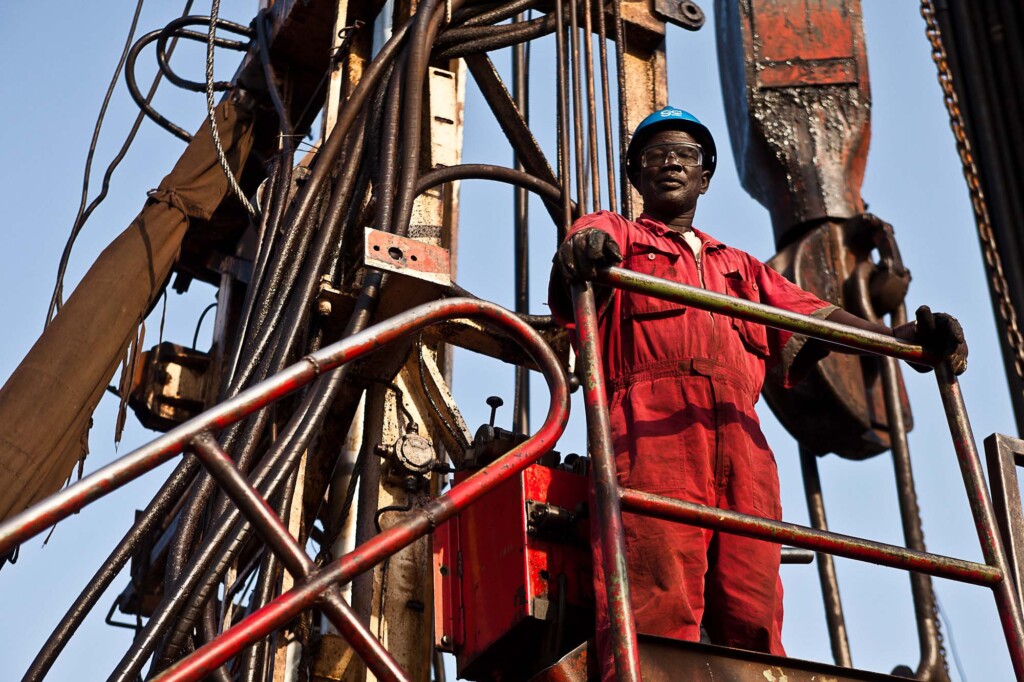Swedish oil company bosses on trial for role in Sudan war crimes

An oil worker in Unity State, South Sudan (File photo: Creative Commons / Enough Project)
The trial of two former executives of Swedish oil company Lundin Oil, accused of complicity in war crimes allegedly committed between 1999 and 2003 in Sudan, began in the Swedish capital of Stockholm yesterday.
The company’s former chair, Swedish national Ian Lundin, and former CEO, Swiss national Alex Schneiter, are accused of asking the then Sudan government to make the army available for security at the site of one of Lundin Oil’s exploration fields, which is now in South Sudan. This later led to aerial bombings, the death of civilians, and the burning of entire villages, prosecutors say.
Lundin and Schneiter deny all charges. Lundin told reporters at Stockholm district court, that he and Schneiter are looking “forward to defending ourselves”.
“This has been a very long process, we have had this case hanging over us for 14 years, today it’s the first day of the trial and it will be a very long trial… We look forward to defending ourselves in a court of law and we believe also that we will receive a fair trial.”
The trial, expected to take until early 2026, will hear 61 witnesses from around the world, including experts, Lundin employees, former UN staff, and the former Swedish prime minister Carl Bildt, who sat on Lundin Oil’s board from 2001 until becoming foreign minister in 2006.
Bildt, who was questioned by prosecutors in 2015, told the Swedish newspaper Dagens Nyheter that it was “highly bizarre that it took a quarter of a century to arrive at something”.
The prosecution is being run by the national unit against organised crime and is expected to present its case from Thursday until 8 November.
Prosecutors say the then Lundin Oil, now known as Orrön Energy, asked the then Al-Bashir regime in Khartoum, to secure a potential oilfield in what is now South Sudan, knowing this would imply seizing the area by military force.
This made the executives complicit in war crimes that were then carried out by the Sudanese army and allied militia against civilians, according to the 2021 indictment. The prosecution agency said then that the men were involved in actions that contravened international law.
“What constitutes complicity in a criminal sense is that they made these demands despite understanding or, in any case being indifferent to, the military and the militia carrying out the war in a way that was forbidden according to international humanitarian law,” the agency said in 2021.
Prosecutors in 2021 also filed a claim to confiscate 1.4bn krona from the company, corresponding to profits from the sale of the Sudan business in 2003.
Last week, Orrön Energy said prosecutors had increased the claim to 2.4bn krona. The company has said it will contest the claim.
Strategic value
The strategic value of oil was a major theme during and since the secession of South Sudan from Sudan in July 2011. Currently, oil extracted in South Sudan is transported via Sudanese pipelines to Port Sudan for refining or export, for which Sudan charges a levy. In 2020, Sudan and South Sudan signed a draft to develop oil cooperation between the two countries in Khartoum.
The draft included entering new fields to increase oil production in South Sudan in the fields of Unity and Toma South, in addition to working on re-pumping field 5A and entering it into the oil production circle. It also includes providing technical support for blocks 3 and 7 in South Sudan.
The signed draft also includes financial arrangements and the supply of quantities of crude oil to the Um Dabakir power plant and Khartoum refinery in Sudan. In terms of the draft, materials, and equipment related to the South Sudanese oil sector will be sent to Port Sudan.











 and then
and then